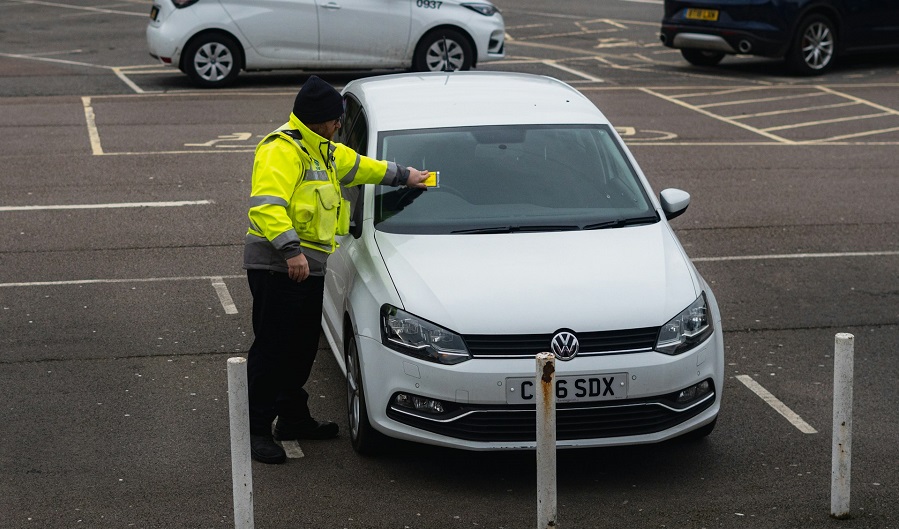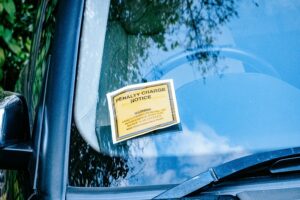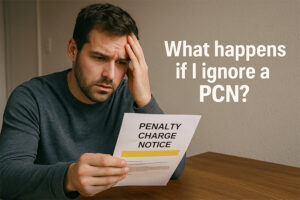Are penalty charge notices fines?

That yellow envelope on your windscreen isn’t just an inconvenience, it’s a legal document with specific implications. But here’s what most people get wrong: a civil enforcement PCN isn’t technically a fine, despite how authorities might present it. While many blindly pay up, understanding the true legal nature of PCNs can save you money and prevent unnecessary escalation. However, for situations involving substantial penalties or complex circumstances, professional legal guidance remains your strongest ally.

Key takeaway: Are penalty charge notices actually fines?
Find out exactly what powers parking enforcers really have.
The legal definition: PCNs vs. Fines
Recognising the precise legal categories of different penalties is essential for knowing your rights and options.
What is a Penalty Charge Notice?
A Penalty Charge Notice is a civil debt claim, not a criminal penalty. When a civil enforcement PCN appears on your windscreen, you’re facing a charge for allegedly breaking regulations like parking restrictions. These notices work under civil law through the Traffic Management Act 2004. Think of them as invoices for breaking terms rather than punishments.
What constitutes a Fine?
Fines belong to the criminal justice system. Courts impose them following convictions after proper legal proceedings including evidence and formal judgment. These penalties become part of your criminal record and carry stronger enforcement powers. Courts must establish guilt “beyond reasonable doubt” before issuing a fine.
Key legal differences
The gap between a civil enforcement PCN and a criminal fine affects your rights at every stage:
- PCNs need only meet a “balance of probabilities” evidence standard.
- PCNs create no criminal record, while fines appear on your criminal history.
- Different appeal systems apply; administrative tribunals handle PCN disputes.
- PCNs follow administrative and civil court channels, not criminal court processes.
- Unpaid fines can trigger criminal prosecution; PCNs remain civil matters regardless.
- PCNs cannot result in penalty points on your driving license, unlike traffic offenses that lead to fines.
Not all parking tickets are created equal. Knowing who issued your notice determines its legal status and your options.
Local authority powers
Local councils and transport authorities have statutory power to issue legally enforceable civil enforcement PCNs. This authority comes directly from Parliament through legislation including the Traffic Management Act 2004. Council enforcement officers (in uniform) and CCTV systems can generate these notices for violations on public roads, council car parks, and designated enforcement zones. These official PCNs follow standardised formats and include specific statutory information about your appeal rights.
Private companies
Private parking companies operating on private land (like supermarkets or retail parks) issue documents that look similar but operate under entirely different legal principles. These are typically called Parking Charge Notices, confusingly also abbreviated as PCNs, but function as claims for breach of contract rather than statutory penalties. Since the landmark ParkingEye Ltd v Beavis Supreme Court case, these charges have gained stronger legal standing, but they remain fundamentally different from council-issued notices.
How to identify the issuer
Check these crucial identifiers to determine who issued your notice:
- Official PCNs explain statutory appeal processes.
- Council PCNs reference specific statutory provisions.
- Official notices include a Traffic Enforcement Centre code.
- Council PCNs display the local authority’s name and official logo.
- Private notices typically mention “contract” rather than regulations.
- Private companies must be members of an accredited trade association (look for logos from the BPA or IPC).
What happens if you don’t pay a PCN?
Ignoring a PCN won’t make it disappear. Understanding the escalation process helps you assess the real risks.
Consequences for council-issued PCNs
When you don’t pay a civil enforcement PCN, local authorities follow a strictly defined statutory progression. The discount period expires after 14 days, followed by a Notice to Owner sent to the registered keeper. Continued non-payment triggers a Charge Certificate that adds 50% to the original penalty. The authority then registers the debt with the Traffic Enforcement Centre at Northampton County Court, gaining legal powers to recover the amount. Final steps can include enforcement agents (bailiffs) visiting your property or registration of a charging order against your assets.
Process for private parking charges
Private operators follow a different route when pursuing unpaid charges. They typically send a series of increasingly stern letters before potentially transferring the claim to a debt collection agency. Unlike councils, private companies must take you to county court to obtain legal enforcement powers. This requires filing a claim, proving their case, and securing a County Court Judgment (CCJ) against you. A CCJ can damage your credit rating for six years and eventually lead to enforcement action.
Do I need legal help with my PCN?
Most PCN cases don’t require a solicitor, but certain situations warrant professional guidance.
When legal advice is recommended
Consider consulting a solicitor if your civil enforcement PCN case involves significant complications: multiple PCNs totalling substantial amounts; escalation to bailiff enforcement; special circumstances like medical emergencies during the violation; or when your vehicle was used without permission. Legal advice is particularly valuable if you’ve received a court order or bailiffs are threatening action. Time-sensitive decisions require expert guidance. Solicitors can identify legal flaws in the PCN that you might miss.
Self-representation options
For standard PCNs, self-representation is usually both practical and cost-effective. Online resources provide template appeal letters and guidance on relevant regulations. Traffic Penalty Tribunals are designed for individuals without legal representation, with straightforward procedures and helpful adjudicators. Many councils offer informal challenge processes before formal appeals.
FAQs
- Are PCNs legally enforceable? Civil enforcement PCNs issued by local authorities are legally enforceable through civil court procedures, including bailiff action. Private parking charges are enforceable through contract law if the operator follows proper procedures.
- Is there a time limit for issuing PCNs? Local authorities must issue a PCN within 28 days of the alleged violation. For CCTV-detected violations, they must send the notice to the registered keeper within 28 days of the contravention date.
- Can I be taken to court for non-payment? Council PCNs can be registered as a debt with the Traffic Enforcement Centre at Northampton County Court. Private operators must file a claim through the county court system to obtain enforcement powers.
- Are PCNs the same across the UK? Scotland, Northern Ireland, Wales and England have different systems and legislation governing PCNs. Even within England, London boroughs operate under different regulations than other local authorities.
While PCNs aren’t criminal fines, they remain legally enforceable civil debts with serious consequences if ignored. Understanding the distinction between a civil enforcement PCN and a fine empowers you to respond appropriately, whether paying promptly, appealing effectively, or seeking professional advice when necessary.
Facing a complex PCN situation?
Qredible’s network of solicitors offers affordable consultations to assess your case, explain your rights, and potentially save you hundreds in unnecessary payments.
KEY TAKEAWAYS
- Penalty Charge Notices are civil debts rather than criminal fines, operating under different legal frameworks and enforcement procedures than court-issued penalties.
- Local authorities have statutory power to issue civil enforcement PCNs, while private companies issue contractual charges on private land with different legal standing.
- You typically have 14 days to pay a reduced rate (50% off) or 28 days for the full amount before enforcement escalates to formal recovery proceedings.
- Non-payment can lead to civil court registration, bailiff action, and potentially county court judgments, though PCNs don’t directly affect your credit score or driving record.
- Most PCN cases can be handled without legal representation, but complex situations involving multiple notices or court proceedings may warrant professional advice.
Articles Sources
- supremecourt.uk - https://www.supremecourt.uk/cases/uksc-2015-0116
- gov.uk - https://www.gov.uk/parking-tickets
- tfl.gov.uk - https://tfl.gov.uk/modes/driving/congestion-charge/penalties-and-enforcement
- londontribunals.gov.uk - https://www.londontribunals.gov.uk/eat/understanding-enforcement-process/parking-penalty-charge-notice-enforcement-process
- theaa.com - https://www.theaa.com/driving-advice/legal/penalty-charge-notice
Do you need a solicitor?
Find a solicitor on Qredible in just a few easy steps












